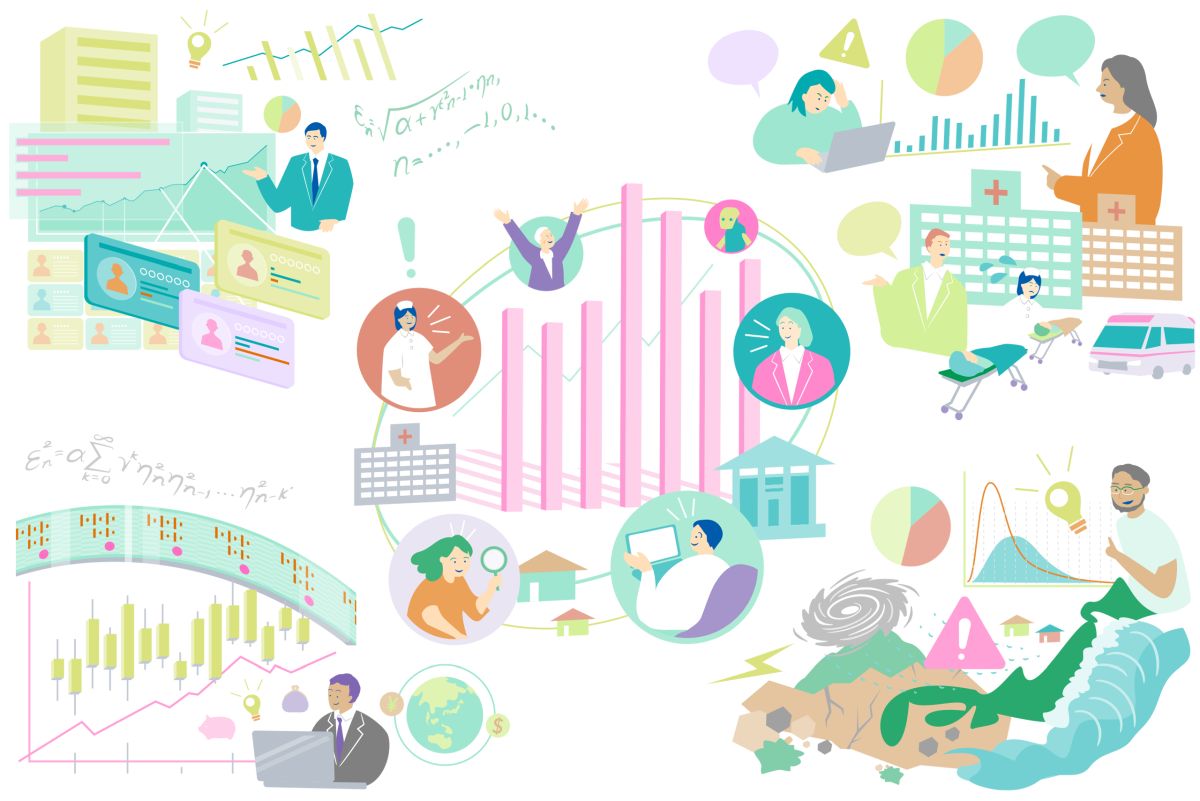Social Data Science
What is Social Data Science?

As a result of the exponential evolution of information technology, particularly the internet, we have now entered an era where enormous volumes of data of numerous types can be utilized quickly. This era of Big Data has brought about dramatic changes to all things, including our lifestyle, society, economy, industries, environment, and international affairs, making it an urgent task to nurture data scientists who can analyze big data. Data science is an academic area where people grasp the essence of many different issues occurring around us, set themes accordingly, collect the necessary data, and seek to resolve them through analyses, modelling, and predictions. In social data science, students learn analytical techniques used in data science based on informatics and statistics; develop a highly specialized understanding of social sciences, such as economics, business administration, and law; identify issues; set themes; and learn how to analyze and solve the issues through the utilization of Big Data.
Research Theme: Social Data Science
What are students expected to learn?
Students learn techniques used in information processing and mathematical analysis of data and statistics, and develop an understanding of various fields where data science is utilized. At the same time, they develop a highly specialized understanding of social sciences, such as economics, business administration, and law, and improve their skills as data scientists who can analyze social phenomena concerning economics, business administration, and law. Building upon the above, they explore challenges faced by specific entities, such as companies that are looking for ways to meet ever diversifying customer needs through the use of enormous customer data, financial institutions that wish to analyze chronological economic and financial market data that is updated every second on a global scale, and governmental agencies planning to establish policies about international issues, local challenges, etc., using big data, and they carry out research to find solutions to these challenges using data science.
What kind of people does the program aim to nurture?
The program aims to develop human resources who can propose solutions to real-life socioeconomic challenges by taking advantage of their advanced ability to process information and statistics, in the field of either economics, business administration, or law.
Career prospects after completing the program
Students can gain employment with companies in many different fields that require big data analysis, particularly IT-related companies, financial institutions (banks and securities companies), insurance companies, governmental agencies engaged in establishing policies using governmental statistics, etc.
